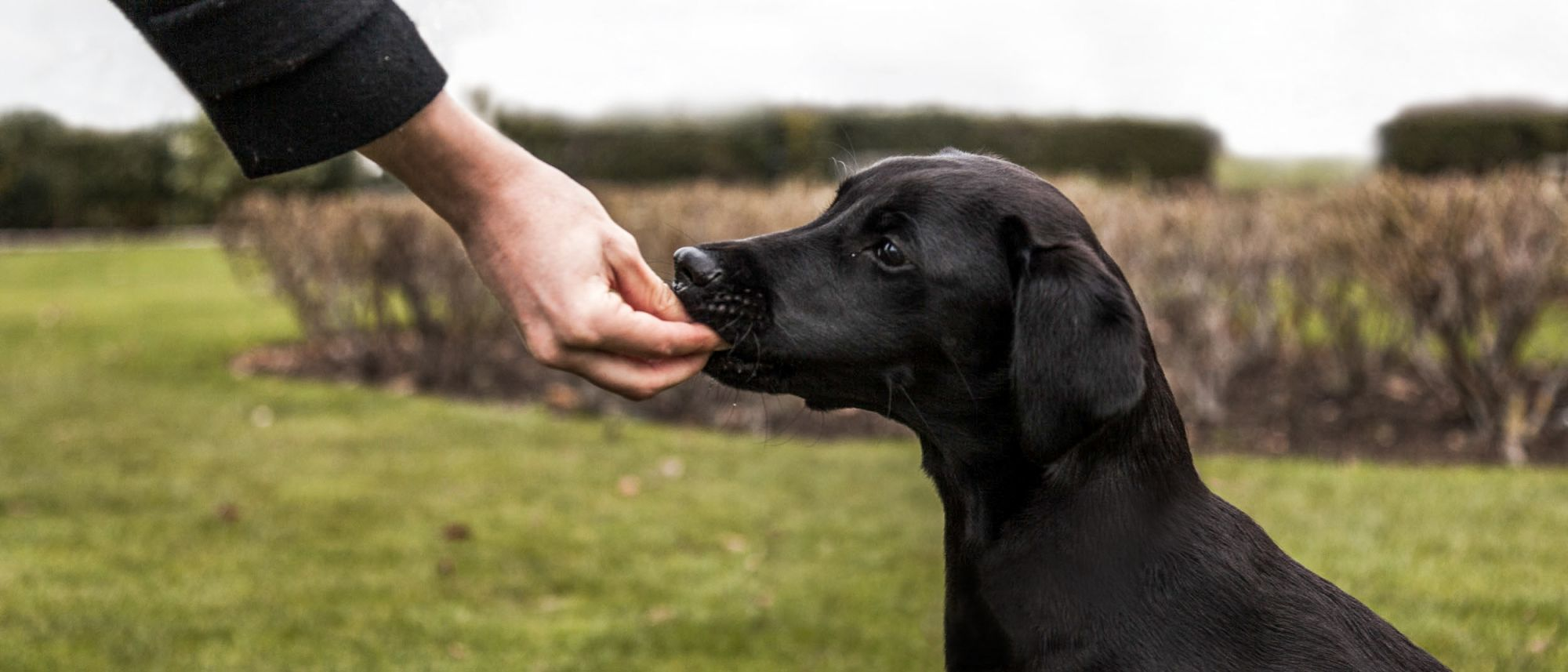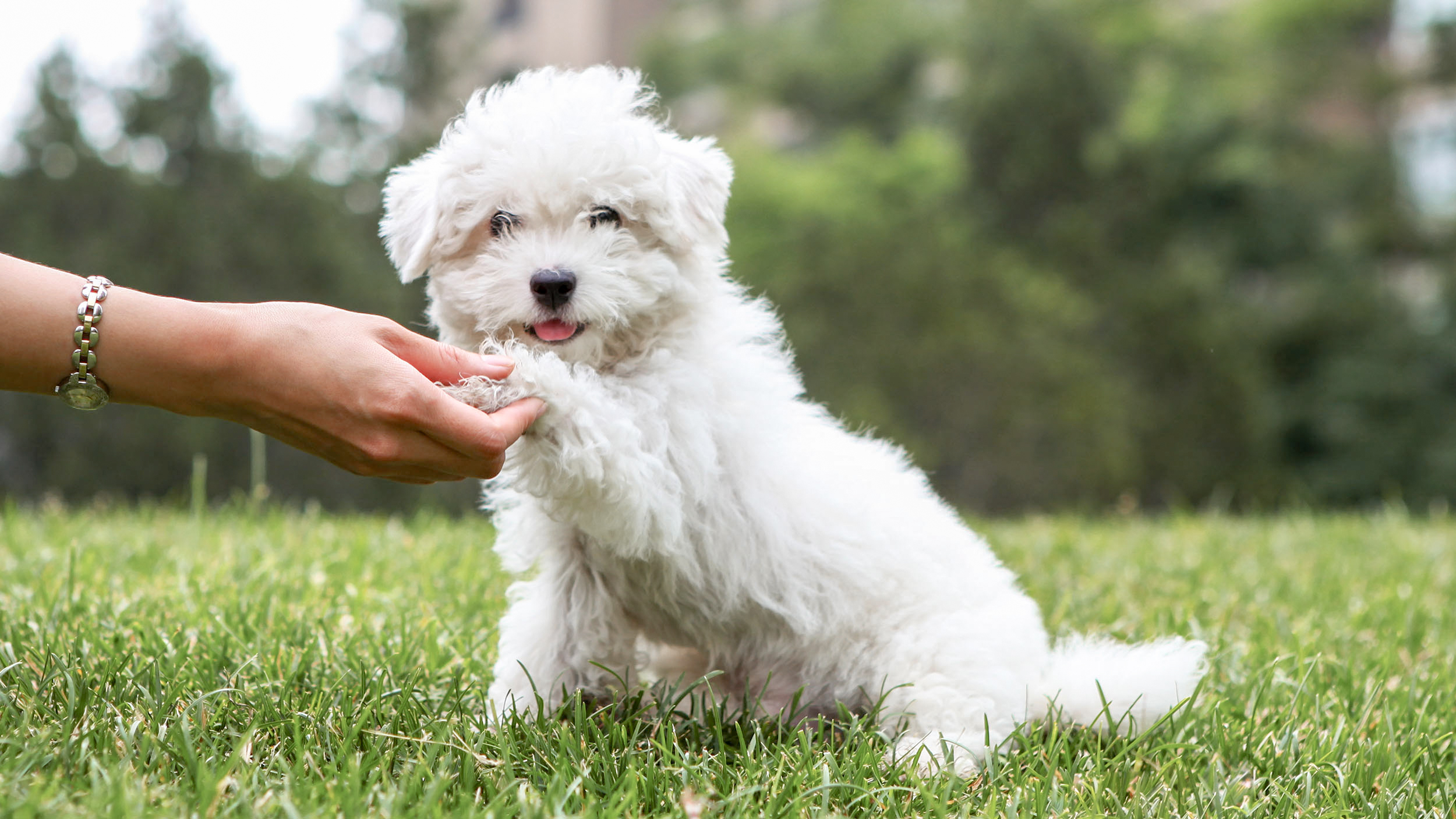How to train your puppy

Good behaviour and obedience need to start early. A puppy's training programme must start as early as possible, because at a young age they have an excellent capacity for learning. Your dog should understand the basic rules of life, even as a puppy, to help them become confident, even-tempered adult dogs and avoid any nervousness that could lead to destructive behaviour.
House training your puppy
Your puppy will most likely not be house-trained when you bring them home and so accidents may occur in their first weeks. Often, a puppy will have an accident in the home because they are given too much freedom, too soon, and are unsure of the appropriate place to urinate.
To avoid this, there are a number of steps you can take:
- Ensure your puppy only has access to one or two rooms in the house, where the family spend the most time
- Crate the puppy when you can’t supervise them. Puppies are less likely to soil their sleeping area as they see this as their safe space and want to keep it clean
- Have regularly scheduled feeding times. This will allow you to monitor the puppy more closely, as they are more likely to need to be let out soon after they've eaten
- It's important to reinforce desired actions, so congratulate your puppy for urinating outside
- To make sure you can give them immediate praise, it's a good idea to go outside with your puppy
- Never punish or reprimand a puppy who has had an “accident”. Instead, find ways to prevent your puppy from ever having the need to urinate outdoors
- Don’t wait for your puppy to signal that they want to go out. Most puppies will not learn to signal their need until they first learn to “hold” in the house. Take them out on a regular schedule
Take them out frequently, after every meal and nap, before bed and as soon as you get up in the morning so they get used to this routine. At the beginning, take them to the same place every time so they can recognise their own scent.
If you notice your puppy turning round and round, or sniffing the floor indoors, this is a sign that they need to go. In the event of an “accident”, don’t scold your puppy, but disinfect the spot to remove their smell. Don’t clear it up while they are in the room and don’t use bleach, both to avoid stimulating their interest.

Puppy obedience training
Dogs are a pack animal and need authority. From the very beginning they will need a single person who can be their teacher. Don’t shout when you call your puppy - they are sensitive to variations in your voice, and will understand different tones very well, such as short and sharp for commands, happy to congratulate them and severe for a reprimand. Always use the same words for the same orders.
Teaching your puppy to sit
Using a food reward, hold the food over the puppy’s nose and slowly move it up and back, over the puppy’s head. When the puppy follows the food with its head, it will sit down. When your dog does this, say the word “sit” with the action.
As soon as your pet sits, say “good sit” and give them the reward. Many repetitions will be necessary for your puppy to learn to associate the reward with the sit. Start off with 3 short training sessions lasting just 5 minutes a day, and extend the sessions little by little as your puppy gets older.
Teaching your puppy to lie down
Once you have taught your dog to sit, you can start teaching the “down” command. Get them to sit first, and then encourage them to lie down by holding the reward, lowering it between their front paws and pulling it forward (away) at the same time, while saying “down”. When they lie down, give them a reward, and plenty of praise.
Choosing a food reward for training your puppy
Choose something small and low calorie that your puppy likes. A kibble taken from their daily ration can do the job, or a nutritional supplement devoted to training. Make sure you include this energy supply in the calculation of their daily ration.
If you have further training aspirations, dog training clubs are open to all puppies accompanied by their owners. As obedience is the basis for everything that you will be doing with your puppy, going to a club will confirm the education you are giving them.
Related Articles
Tailored nutrition for your puppy
A range of formulas that help build their natural defences, support healthy growth and digestive system development.
Like & share this page